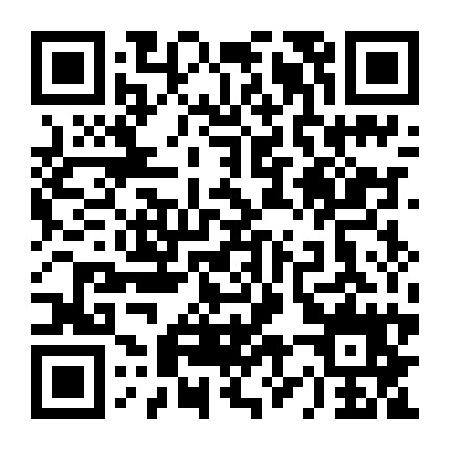医学博士英语统一考试之后,即将迎来各院校的考博英语初试,英语考试的备考,参考历年真题是一个很重要的备考过程,今天新东方在线小编给大家整理了兰州大学2014年考博英语真题,帮助大家更好的备考,考博英语考试,一起来看看吧!
(1) __________________ Player 1 may not know these particular words of wisdom, but chances are she’s thinking much the same as she tries to decide whether to send Player 2 some of her $10 stake. If she does, the money will be tripled, and her anonymous partner can choose to return none, some, or all of the cash. But why should Player 2 send anything back? And why should Player 1 give anything in the first place? Despite the iron logic of this argument, she types in her command to send some money. A few moments later she smiles, seeing from her screen that Player 2 has returned a tidy sum that leaves them both showing a net profit.
(2) ___________________ Based on exactly the same cold logic that Player 1 dismissed, the so-called Nash equilibrium predicts that in economic transactions between strangers, where one has to make decisions based on a forecast of another’s response, the optimal level of trust is zero. Yet despite the economic orthodoxy, the behavior of Players 1 and 2 is not exceptional. In fact, over the course of hundreds of such trials, it turns out that about half of Player 1s send some money, and three- quarters of Player 2s who receive it send some back.
Zak is a leading protagonist in the relatively new field of neuroeconomics, which aims to understand human social interactions through every level from synapse to society. It is a hugely ambitious undertaking. By laying bare the mysteries of such nebulous human attributes as trust, neuroeconomists hope to transform our self- understanding. (3) _________________ “ As we learn more about the remarkable internal order of the mind, we will also understand far more deeply the social mind and therefore the external order of personal exchange, and the extended order of exchange through markets.”
(4) __________________ As Zak’s collaborator Steve Knack of the World Bank points out: “Trust is one of the most powerful factors affecting a country’s economic health. Where trust is low, individuals and organizations are more wary about engaging in financial transactions, which tends to depress the national economy.”
And trust levels differ greatly between nations. The World Values Survey, based at the University of Michigan, Ann Arbor, has asked people in countries around the world, “Do you think strangers can generally be trusted?” the positive response rate varies from about 65% in Norway to about 5% in Brazil. (5) __________________ “Policy-makers in these latter countries might be urgently interested in mechanisms that enable them to raise national trust levels,” observes Knack.
A. Even more intriguingly, it seems that this urge to respond positively when someone shows trust in us is largely outside our control.
B. Crucially for international economic development, what is true for individuals turns out also to be true for nations.
C. Disturbingly, countries where trust is lower than a critical level of about 30%—as is the case in much of South America and Africa – risk falling into a permanent suspicion- locked poverty trap.
D. “It’s good to trust; it’s better not to,” goes an Italian proverb.
E. They believe their findings even have the potential to help make societies more productive
and successful.
F. He points out that our brains have been tailored by evolution to cope with group living.
G. This outcome doesn’t just flout proverbial wisdom, it thumbs its nose at economic theory.
考博必备!历年真题及答案
考博精品好课,就选新东方!

 资料下载
资料下载
【必看】考博英语词汇10000例精解
发布时间:2020-09-02关注新东方在线服务号
回复【10000】免费获取
医学考博英语作文核心基础词汇整理
发布时间:2020-04-15关注新东方在线服务号
回复【医学考博】获取
医学考博英语阅读理解练习资料
发布时间:2020-04-15关注新东方在线服务号
回复【医学考博】获取
法学考博英语高频词汇word版
发布时间:2020-04-15关注新东方在线服务号
回复【医学考博】获取
医学博士英语统考真题及解析
发布时间:2019-12-26关注新东方在线服务号
回复【考博真题】获取
全国医学博士外语统一考试真题
发布时间:2019-12-26关注新东方在线服务号
回复【考博真题】获取
中科院考博英语复习备考实战经验分享
发布时间:2019-12-26关注新东方在线服务号
回复【考博经验】获取
中科院考博英语真题练习资料
发布时间:2019-12-26关注新东方在线服务号
回复【考博真题】获取

关注新东方在线服务号
关注新东方在线服务号,
免费获取考博必看干货资料

 推荐阅读
推荐阅读
沈阳工业大学2022年博士研究生招生考试英语真题B卷
来源 : 沈阳工业大学 2022-12-26 16:19:18 关键字 : 沈阳工业大学2022博士英语真题
沈阳工业大学2022年博士研究生招生考试英语真题A卷
来源 : 沈阳工业大学 2022-12-26 16:18:19 关键字 : 沈阳工业大学2022博士英语真题
沈阳工业大学2021年博士研究生招生考试英语真题B卷
来源 : 沈阳工业大学 2022-12-26 16:09:06 关键字 : 沈阳工业大学2021博士英语真题
沈阳工业大学2021年博士研究生招生考试英语真题试卷A卷
来源 : 沈阳工业大学 2022-12-26 16:07:31 关键字 : 沈阳工业大学2021博士英语真题
沈阳工业大学2020年博士研究生招生考试英语真题试卷
来源 : 沈阳工业大学 2022-12-26 16:04:42 关键字 : 沈阳工业大学2020年博士英语真题


 考博好课推荐
考博好课推荐
基础薄弱,备考迷茫,送纸质资料
价格 : ¥2280元
资深教师,教学简明,直接有效!
价格 : 0元
 资料下载
资料下载
关注新东方在线服务号
回复【10000】免费获取
关注新东方在线服务号
回复【医学考博】获取
关注新东方在线服务号
回复【医学考博】获取
关注新东方在线服务号
回复【医学考博】获取
关注新东方在线服务号
回复【考博真题】获取
关注新东方在线服务号
回复【考博真题】获取
关注新东方在线服务号
回复【考博经验】获取
关注新东方在线服务号
回复【考博真题】获取

 阅读排行榜
阅读排行榜
 相关内容
相关内容